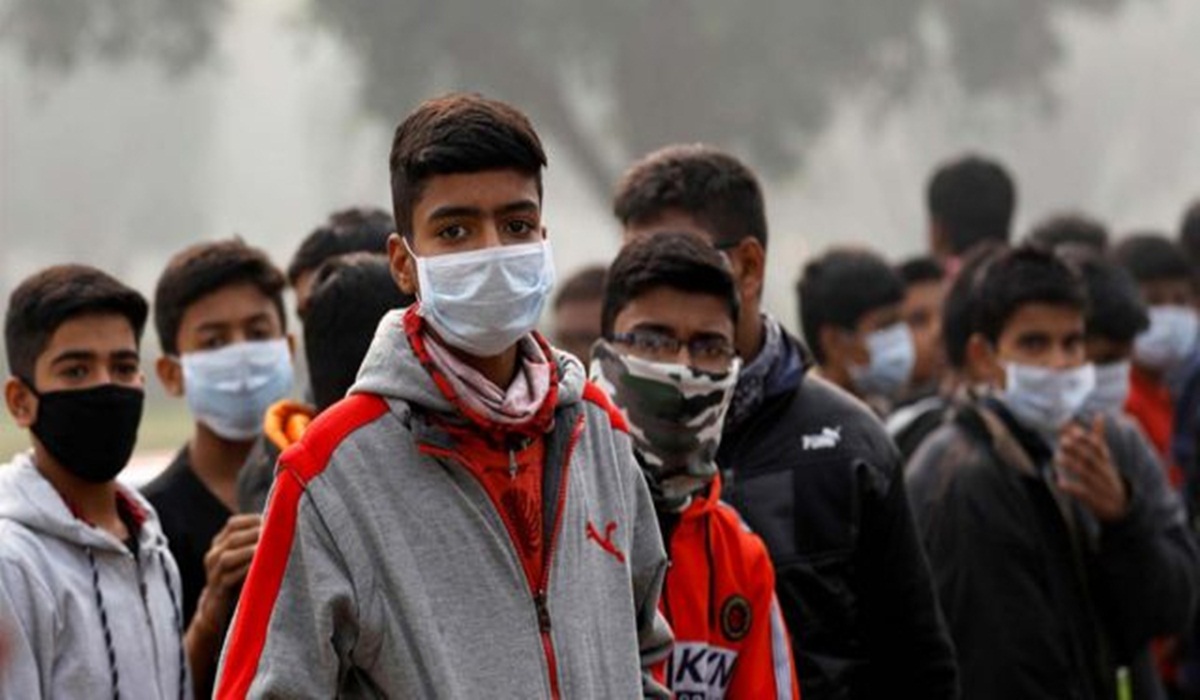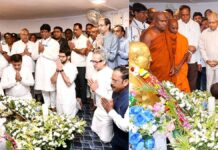X: @the_news_21
As the high-stakes electoral battle intensifies in Maharashtra, political parties are grappling with a range of challenges, from managing family loyalties and factionalism to forging temporary truces for electoral gains. At the center of this unfolding drama is Nationalist Congress Party (NCP) chief Ajit Pawar, whose party’s moves highlight the complex interplay of power, ambition, and pragmatism that underpins Indian politics.
Ajit Pawar has once again turned to family members for key electoral battles. While his wife Sunetra Pawar will be contesting from the party’s bastion of Baramati, another relative, Archana Patil, has joined the NCP and will be fielded from the Dharashiv seat in Marathwada. Archana, the wife of BJP MLA Rana Jagjitsinh Patil, who is a nephew of Sunetra Pawar, will be pitted against her own brother-in-law, Shiv Sena (UBT) MP Omraje Nimbalkar, making it a family affair in Dharashiv. The move highlights the NCP’s reliance on family connections and dynastic politics, a common trend in Indian elections.
While Ajit Pawar’s party is leaning on family ties, the rival Shiv Sena (UBT) faction is grappling with internal dissent as MP Bhavana Gavali, who was denied a ticket for the Yavatmal-Washim seat, chose to remain absent during the filing of nomination for the official Sena candidate Rajashri Patil. Gavali, who has been an MP for three terms, was insisting on contesting until the last moment. Her absence is being seen as a sign of dissent, and Chief Minister Eknath Shinde now faces the challenge of preventing her from campaigning against the official candidate, highlighting the difficulties in managing factionalism and dissatisfaction within political parties during the ticket distribution process.
In a contrasting development, the Congress party has managed to forge unity, at least temporarily, as senior leader Vijay Wadettiwar and the party’s Lok Sabha candidate from Chandrapur, Pratibha Dhanorkar, seem to have resolved their differences and decided to work together to win both the Chandrapur and neighboring Gadchiroli-Chimur seats. Earlier, tensions had arisen between the two, with Wadettiwar’s daughter expressing interest in contesting and Dhanorkar launching an attack on him. However, after a meeting at Wadettiwar’s residence, the two leaders have decided to put aside their differences and focus on ensuring an electoral victory for the party, displaying a rare instance of pragmatism over personal ambitions.
As the electoral battle unfolds, these contrasting narratives of Ajit Pawar’s reliance on family loyalties, the Shiv Sena’s struggle with internal dissent, and the Congress’s attempt at forging temporary unity plays highlight the complex web of political dynamics that shape the outcomes of Indian elections. Whether it is the NCP’s dynastic politics, the Shiv Sena’s factional challenges, or the Congress’s pragmatic alliances, the drama unfolding in Maharashtra is a microcosm of the larger challenges faced by political parties across the country.
Also Read: KC Venugopal Vs Sanjay Nirupam: Power Tussle Symptomatic of Deeper Congress Crisis







order clomid without a prescription can you get generic clomid without rx where to buy clomid cheap clomid online clomiphene bula profissional can i order cheap clomiphene for sale where can i get generic clomiphene price
More posts like this would add up to the online elbow-room more useful.
More posts like this would prosper the blogosphere more useful.
zithromax 500mg over the counter – buy generic azithromycin generic flagyl
buy semaglutide without a prescription – rybelsus 14mg cheap order cyproheptadine pill
domperidone over the counter – buy generic sumycin for sale flexeril pill
augmentin online – atbioinfo buy ampicillin paypal
order mobic 7.5mg generic – https://moboxsin.com/ order meloxicam 15mg sale
purchase deltasone – corticosteroid prednisone 10mg pills
over the counter ed pills that work – fastedtotake buy erectile dysfunction meds
purchase amoxil online – comba moxi cost amoxil
diflucan without prescription – https://gpdifluca.com/# fluconazole 100mg brand
buy escitalopram generic – https://escitapro.com/ order escitalopram 20mg online
cenforce for sale online – on this site cenforce sale
maxim peptide tadalafil citrate – https://ciltadgn.com/# what is cialis prescribed for
cialis cheapest price – on this site cialis package insert
purchase zantac online cheap – https://aranitidine.com/ order zantac 150mg generic
viagra pill 100 – https://strongvpls.com/ buy cheap viagra thailand
Thanks for putting this up. It’s evidently done. https://gnolvade.com/es/fildena/
I couldn’t turn down commenting. Warmly written! https://ursxdol.com/cialis-tadalafil-20/
This website really has all of the bumf and facts I needed adjacent to this participant and didn’t know who to ask. https://prohnrg.com/product/rosuvastatin-for-sale/
This is the make of delivery I turn up helpful. web
This is the big-hearted of writing I positively appreciate.
https://proisotrepl.com/product/clopidogrel/
The thoroughness in this draft is noteworthy. https://images.google.com.vn/url?sa=t&url=https://schoolido.lu/user/adip/
I am actually delighted to gleam at this blog posts which consists of tons of useful facts, thanks object of providing such data. http://bbs.51pinzhi.cn/home.php?mod=space&uid=7053867
dapagliflozin order online – click order dapagliflozin sale
With thanks. Loads of expertise! http://seafishzone.com/home.php?mod=space&uid=2330987
Thanks for sharing. I read many of your blog posts, cool, your blog is very good.
You can protect yourself and your stock by being alert when buying medicine online. Some pharmacopoeia websites control legally and provide convenience, solitariness, sell for savings and safeguards for purchasing medicines. buy in TerbinaPharmacy https://terbinafines.com/product/norvasc.html norvasc
This is a theme which is virtually to my verve… Diverse thanks! Exactly where can I upon the contact details in the course of questions? fildena xxx 100 mg
Thanks for sharing. It’s first quality.
Thank you for your sharing. I am worried that I lack creative ideas. It is your article that makes me full of hope. Thank you. But, I have a question, can you help me?
iwin – nền tảng game bài đổi thưởng uy tín, nơi bạn có thể thử vận may và tận hưởng nhiều tựa game hấp
搭载智能站群程序,自动化搭建与管理,为SEO项目提供核心驱动力。站群程序
iwin – nền tảng game bài đổi thưởng uy tín, nơi bạn có thể thử vận may và tận hưởng nhiều tựa game hấp
Tham gia cộng đồng game thủ tại Go88 để trải nghiệm các trò chơi bài, poker phổ biến nhất hiện nay.